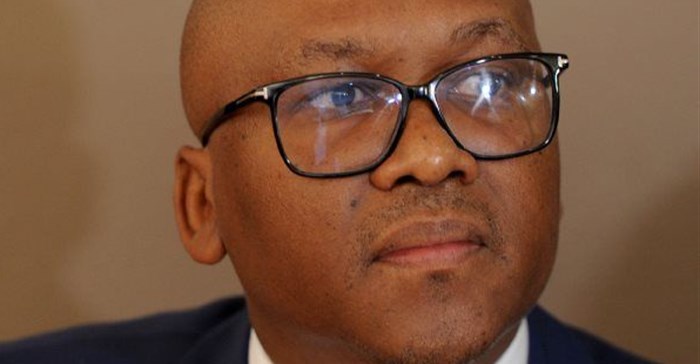Webinar: Gauteng is ready for the storm, says health MEC

“All of us have been talking about the peak. We are not there yet in Gauteng. A number of things are defining Gauteng. We have a high number of confirmed cases and the highest number of active cases. Our recovery rate is lagging quite dramatically. Most of our active cases have mild or no symptoms and do not require active medical attention," said the province's MEC for Health, Dr Bandile Masuku in a Daily Maverick webinar.
“We knew the storm was coming. This is an urban province. It spreads fast in high-density areas. Gauteng did expect to have the highest number of infections. One out of four people in South Africa lives in Gauteng and the province has a number of densely populated areas. As the country’s economic hub the population is highly mobile and this underlines the speed at which the virus is spreading. The only thing that didn’t happen was that we thought we would be first to reach the peak," he said.
According to the models used to predicting the spread of the virus through South Africa, Gauteng would make it through June without too many problems but that the number of infections would start to peak by the end of July until mid-August and September.
Discussing the province's state of readiness, Masuku said: “We chose to use the Covid-19 pandemic to make some fundamental changes to our health system.”
Beds
This includes a hospital bed management team. “The team will look daily at how to direct the flow of patients to hospitals. It reduces the panic. This way the Emergency Medical Services know where to go. This is work we have been doing with the private sector. The more we master the bed management system, the easier it will be for us to deal with it."
He added that wards at public hospitals were being refurbished and repurposed, which has added another 600 beds, while a further 1,400 beds had been added by using alternative building technology.
“Field hospitals and tents are what we need at the moment. We started off with Nasrec as an isolation facility but we knew we would have to upgrade to a field hospital.”
Masuku said their biggest challenge was to decongest health facilities and make sure queues are not too long. “We are comfortable for now that we will ward off the storm.”
Oxygen
He said he was confident that the province’s hospitals had sufficient oxygen for patients who need it. “We had a discussion with Afrox. Oxygen will be redirected from industry to the healthcare system. In some of our facilities there were problems with pressure and how the cylinders will be stored but we are working on it. The tanks are being installed – also at the Nasrec field hospital.”
He added that they were also making sure that facilities have beds that are fitted to provide oxygen to patients.
Masuku said that while critically ill patients will be admitted to tertiary hospitals and the field hospitals will be used for those who are less seriously ill, these patients should still be able to access oxygen should they need it.
“Even at the tent we have at the Steve Biko hospital, we can give oxygen there [so] that patients do not lose any time.
Human resources
He said 9,000 medical professionals had applied to be placed on the province’s database for work during the pandemic. “We can pay them. People should volunteer, but at some point we should also look at unemployment.” He said they had engaged with a group of volunteers helping out at the Nasrec hospital. “We want to make sure that those who work there are fairly remunerated.”
He added that the province was privileged to have three medical schools and that this was helping a lot. “We are getting ready to open a fourth one at the University of Johannesburg. Those are our long-term plans.”
Over the short term, Masuku said the department was looking at increasing the scope of practice of clinical associates and enrolled nurses. “We must be dynamic and innovative. We want people to have freedom to think outside of the box on how we can do some of the things going forward.”
Command structure
Masuku explained the structure for managing the pandemic in the province, saying the Gauteng Command Council was a “fairly high level” structure that involved the premier, MECs, the provincial police commissioner and the heads of department.
While the command centre, which includes civil society, private healthcare, municipal managers, Home Affairs and also has a programme involving community-based organisations is more operational in nature.
“The command centre has six pillars: Public health, economic response and relief, social security, the capacity of state to deliver and social solidarity. Social solidarity has been underdeveloped in our response so far. We had to mitigate between lockdown and mobilising communitie," he said.
He said they were establishing community-based structures to build social cohesion at that level.
Treatment options
Masuku said they are “listening to the clinicians” when it comes to treatment options. “A politician can’t take a decision on whether a patient needs a bed or oxygen. We have an advisory committee. We are using the medical schools to our advantage. We don’t want to put politics into anything. The hospitals are having mortality and morbidity meetings to discuss how to improve patient outcomes. We are very grateful of the work the clinicians are doing and their advice.”
“Broken as it is, our healthcare system is very resilient. It can carry us through."


































